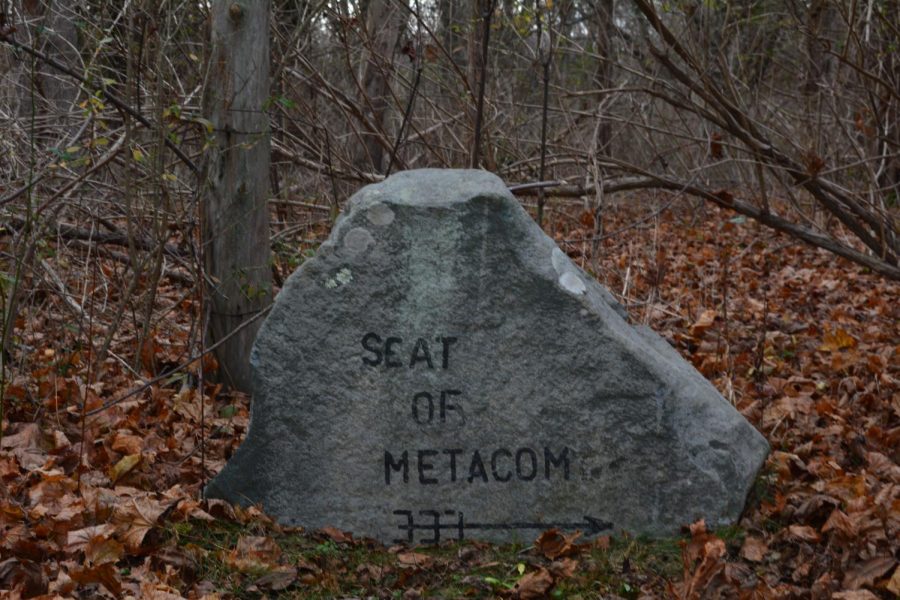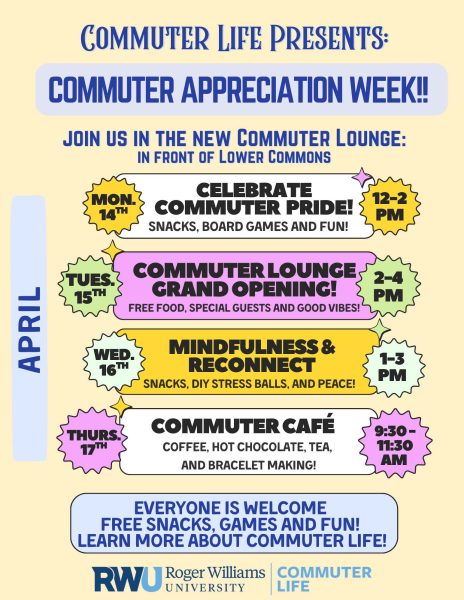Providence community hopes Truth and Reconciliation process yields change
The Seat of Metacom is an important landmark for the Pokanoket tribe. It is located in Bristol at the highest point in Bristol County.
PROVIDENCE, R.I.— Providence Mayor Jorge O. Elorza signed an executive order this past year declaring the city as an inclusive municipality for all residents, particularly referring to Black, Indigenous and people of color.
The executive order is committed to eradicating bias and racism within the city’s governing systems, policies and structures that either violate or jeopardize the well-being of, the safety of and the value of these communities that reside there.
This order seeks to create public awareness and education within communities by examining different forms of discrimination within both the private and public sectors.
Elorza hopes to document the experiences endured by Black, Indigenous People and people of color by ensuring that their historical contributions to the city are both accurately recorded and accurately portrayed.
In addition to the concept of “Truths,” this executive order strives to undergo a reconciliation process that would ultimately not only recognize the profound depth of wounds that these communities had experienced over time, but would also find both creative ways to help members engage and confront the past in an effort to recognize the continuous ways that the past shapes the present, and help those who have been affected heal and overcome the deep racial divisions that exist to this day.
Within the United States of America today, it is treaties that define the relationship between the federal/state governments and Indigenous peoples. This generally means that unless a tribe declares itself as “recognized,” the government (on both levels) does not usually recognize tribal nations as sovereign entities and uphold relationships between tribes.
For example, in 2010, the U.S. government issued a written apology to the Indigenous people of America who had experienced cruelty and separation from their families throughout the years. And while it has been made apparent that this formal letter of apology was published, no elected official had ever read it aloud, resulting in the document being buried in other legislation once signed.
“Commercially we don’t exist to them. They don’t mean flesh and blood we don’t exist, they mean that there is no evidence that from a commercial aspect that we exist. We’re extinct. The way that the law examines us, we don’t exist right now” remarked Watson.
Founder and CEO of Providence Culture Equity Initiative (PCEI) and Neesu Wushuwunoag (member of the Mashapaug Nahaganset) Raymond (Two Hawks) Watson seeks to promote and support cultural equity and development initiatives within the Rhode Island community. Focusing primarily on the Providence area, Watson’s service through PCEI provides, supports, and services specific areas of cultural awareness, advocacy, and advisement.
“PCEI adopted a concept we refer to as ‘living culture,’ that being that towns and locations need to stop treating us like we’re in a history book; like we used to be here like these things happened to us, but those times have passed. They don’t do that with the 4th of July parade that is alive and well in Bristol every year; in fact, we see it come to life every day,” said Watson. “That is a part of who they [residents] are today, why are they not treating their Indigenous communities that way as well? It’s because they see us as different, and they don’t see us as reality, they see us as this fantasized concept that used to be around for their great ancestors.”
In addition to the executive order that was passed this last year, the City of Providence released a “lengthy report” on March 29, regarding the history of Black and Indigenous racial injustice over the past four centuries, as the city seeks to grapple with how best to provide reparations to those communities who had been wrongly suffered.
The report paints a grim picture of both the city and state’s role in suppressing the human rights of both Black and Indigenous people, beginning with the enslavement of Africans and the mass deaths of Indigenous people from European diseases. But even after slavery was abolished in Rhode Island, many leaders and businesses remained active within the slave trade according to the narrative.
When the colonists came to the land of Bristol, they referred to the Pokanoket people as “Wampanoag,” and as a result, anyone who identified themself (no matter their age) as a Pokanoket, was killed on site.
“The Pokanoket were perceived as enemies and that they were powerful enough to become a threat to the settlers,” said Dr. James D. Diamond, visiting professor at Roger Williams University’s School of Law. Diamond is also the former director of the Indigenous Peoples Law and Policy Program’s Tribal Justice Clinic.
“There’s uncertainty with regards to who started identifying the Pokanoket as Wampanoag, and while this is a very important fact to trace, the idea of identity is very important. When we think of identity, we instantly refer to our self-worth, where we fit in, who we are both as people and members within the community.”
“While removing the identity of these tribes was not only a way of defeating the indigenous tribes but also part of the conquest, their main objective was to blend them in with the settlers, to create this persona that they were one nation under God. This obviously didn’t work because you have people that still stand proudly today that are willing to talk about their dark pasts. It’s also important to note that suicide among natives is especially high because it ultimately ties to their self-worth and Identity” Diamond explained.
Similar to their Canadian counterparts, The National Native American Boarding School Healing Coalition calls for reconciliation for victims of boarding schools.
“Roger Williams University, for example, just gave an honorary doctorate to the Sagamore of the Pokanoket for his work in raising awareness for his people. They worked with us to highlight the Indigenous heritage of the lands of Bristol and the campus there and embed that into the philosophy of the university as a whole,” Watson said.
Watson believes that while as a country the U.S. is certainly not in the right direction, it is at least beginning to have conversations around what that right direction may be.
“Our philosophy is that everyone suffers from colonization. For example, people go around calling themselves colors like ‘white’ and ‘black,’ we can trace that back to when that terminology was introduced,” Watson said.
“For the simple fact that people feel the need to identify for racial reasons, there is still colonization occurring even today. This is why we push culture. It’s because there’s a significant distinction between culture and race; your culture is how you identify yourself individually, while your race is who outside people say that you are based on their observations,” Watson added.
And despite the fact that the reconciliation process is in the works, the issue of colonization still remains; particularly in the New England area.
“Up here colonization is represented with a handshake and a smile, and while they won’t discriminate [against] you to your face, you won’t get hired at certain jobs (for example). You’ll only go so far, it’s presented as if ‘we’re not racist up here,’ but instead you’re an even worse type of racist because you don’t have enough self-respect or honesty in your beliefs to be upfront about them. Tell me how you feel about me.”
Currently, examples of reconciliation among Indigenous groups include the City of Providence granting Watson’s tribe full free access to their ancestral lands in Mashapaug Pond, in order to engage in ceremonies and other events of that nature. Another example is Warren’s land acknowledgment (being the first in New England) recognizing the lands that reside there to belong to the Pokanoket tribes.
Further up north, the Canadian government created the Truth and Reconciliation Commission of Canada in an attempt to facilitate reconciliation among former students, their families, communities and all Canadians impacted by the Indian residential school system. This process allows victims to share their stories and experiences with the general public, and allow for their voices to be heard. Between the years 2007 and 2015, the Canadian government had provided the TRC with a compensatory value of $72 million in order to host national events all around the country, educating people about the history and reality of these school systems.
As a result, it may be thought that reconciliation can be represented by a formal document or compensatory prize, but to Watson, and the Pokanoket tribes alike, it comes in the form of respect.
“Respect us, acknowledge us, give us the recognition that we deserve and that we should have. And by doing that you create space for reconciliation creating an opportunity for building, growing, and learning,” Watson said.





